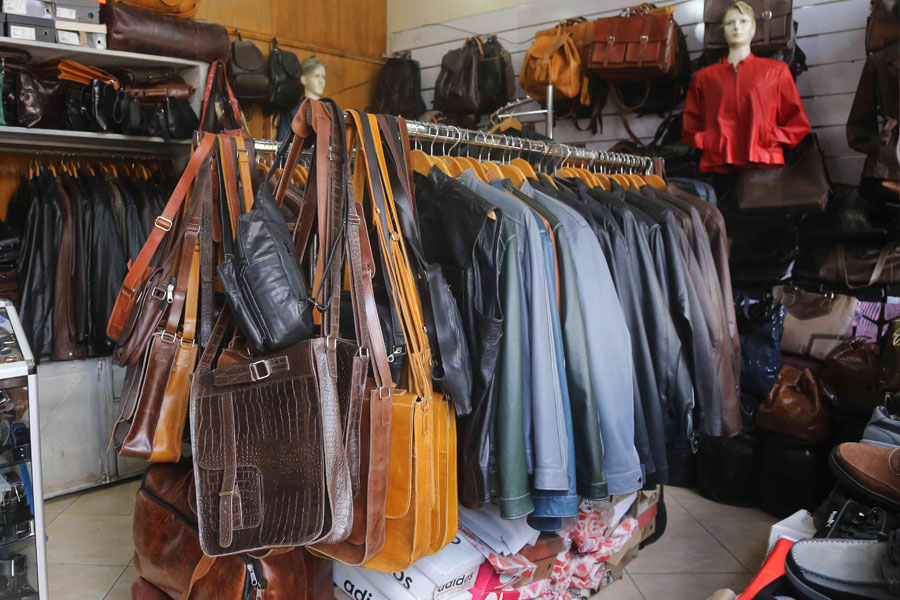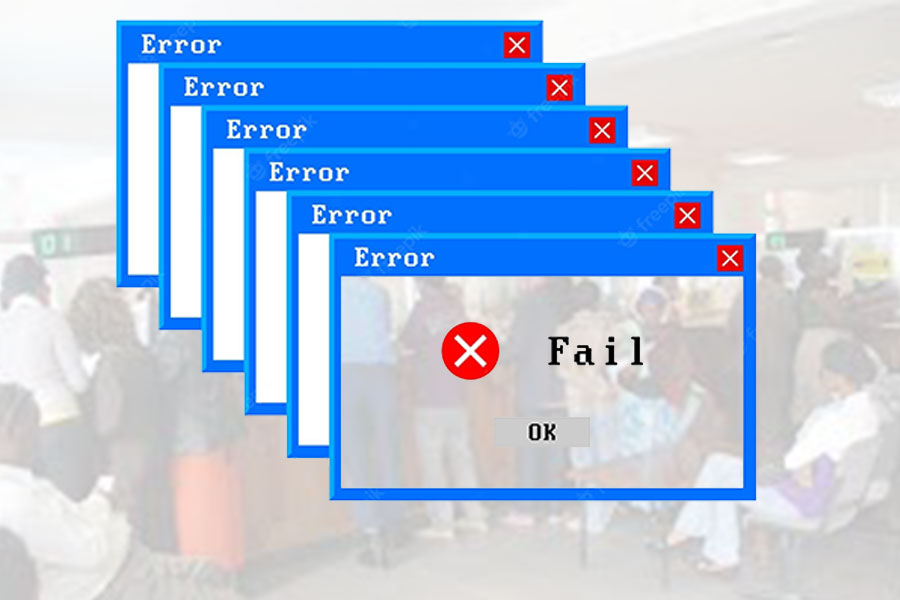
Fortune News | Apr 06,2019
Oct 8 , 2022
By Yehualashet Tamiru Tegegn
Inflation debases a currency, and its depreciation could be outrageous to buy the same goods at higher prices. One needs another currency procured by further inflation, creating a vicious spiral of constantly rising prices and wages and continually increasing inflation, write Yehualashet Tegegn.
Creating a common currency for Africa has been one of the central concepts behind the Africa Union. In making a single currency, the role of the existing regional economic communities (RECs) is essential. Created under the current RECs free trade areas, then followed by the merger of these building blocks into a common African custom union. It ultimately created a single African currency that an African Central Bank would issue.
The Abuja Treaty, signed in 1991, established the African Economic Community (AEC), which anticipates the establishment of an African Central Bank with a plan to produce a single currency by 2023, later extended to 2025, that would be called the Afro or Afrique. The introduction of this single currency Is preceded by the creation of building blocks of monetary unions in five regional economic communities, namely: the West African Economic & Monetary Union, the Economic & Monetary Community for Central Africa, the Arab Monetary Union, Southern African Monetary Union and East African Monetary Union, all under the umbrella of an African Monetary Union. Currently, the member states of West African and Central African unions are using the single currency of the French franc. Transactions between the same group members may be easy, but transactions between countries of different blocks would be challenging.
What are the possible scenarios?
The first option would be possible trade and financial flow for transactions between traders of the same block. This transaction is similar to a domestic transaction where the transaction concludes in the same currency. This arrangement will increase trade between member states and is less susceptible to price instability and significant crisis.
The second scenario would be possible trade and financial flow under transactions between two blocks. Let us say a merchant from a Central African union member country, Gabon wants to import a car from an East African union member like Kenya. The former uses the franc as a means of payment, and the latter uses Shilling.
A few things will happen with this type of transaction. First, the central bank of the importer is unaffected by the trade as it exchanges Franc for dollars, and things seem normal. However, the second staggering fact is the importer's block will have withdrawn all of its reserves and has nothing left as it issues only a single currency. Suppose countries from the importer's blocs are predominately in the trade deficit. In that case, the central bank of the block, through time, will become a meaningless entity as it has only the power to regulate and issue francs but not dollars. The high demand for dollars increases the dollar's value, and the dollar to franc exchange rate will rise. As the price of the dollar increases, the cost of imported goods will also increase. Such a consequence leads to inflation and price instability.
Inflation debases a currency, and its depreciation could be outrageous to buy the same goods at higher prices. One needs another currency procured by further inflation, creating a vicious spiral of constantly rising prices and wages and continually increasing inflation. In this case, the block central bank's role would be compromised.
Central banks are usually assigned two main goals: the most recent one is price stability, and the second is ensuring the integrity of payments. In modern economies, this takes the form of the smooth functioning of interbank exchanges on the money market, which contributes to and depends on maintaining financial stability. However, as the transaction concluded in a currency could not be printed by the central bank concerned, it will not effectively be able to do these functions.
The third scenario would be the rosy assumption of one single currency in Africa. Macroeconomic mismanagement in several African countries implies the need for a supranational authority mandated to do so. From a rational point of view, because of policymakers' scarce resources in Africa, it is better to demand supranational organs to function as an agency to restrain the member states. The single currency will most likely remove the macroeconomic uncertainty and encourage foreign direct investment in the continent.
Generally, the benefits of adopting a single currency have three categories: single-digital inflation, growth, and unity among African countries. However, it is impossible to rule out the other benefits. For instance, the single currency could enhance intercontinental trade relationships by reducing the cost of exchange rates for many countries. According to field studies, two countries with the same currency trade three times more than those with similar economic characteristics and geographical locations but different currencies.
The Africa Union could use the single currency tool to resolve conflicts to ensure stability in the continent and to defend democracy in Africa in case of a coup d’état. Moreover, the continent will be empowered to collectively act against perceived and actual financial and economic aggression against external forces.
Let us assume that some years later, Africa decided to have a single currency called Afro. What would be the possible financial and trade flow between member states? Assume a transaction between an Ethiopian and a Kenyan trader, whereby the latter wants to import coffee from the former.
This seems straightforward. However, the problem starts to pop up once we introduce government expenditure into the scene. Monetary unification comes with both benefits and costs. Members benefit from reduced transaction costs, end of the beggar-thy-neighbour policies, the elimination of exchange rate uncertainty, and more transparent price. Loss of a country's sovereignty over monetary policy, especially surrendering control over monetary policy instruments and shock absorbers such as exchange rate and interest rate, is one of the high potential costs of membership in a single currency union. If the nature of the shocks is asymmetric, the cost of joining a single currency union will be substantial.
If there is a country with significant financial needs, either because of inefficient tax collection or outsized spending, it will create a deficit in the government's budget. This, in turn, creates pressure on the central bank to generate seigniorage for budget financing; given the costs of inflation, countries which greater discipline either in spending or tax collection could be preferred to maintain their currency.
Although both central and commercial banks are supposed to be independent of the government, such an undisciplined government may pressure the banks to lend to state-owned enterprises without proper safeguards. This debt may not be repaid on time or maybe written off on the wrong date. This was the case on many occasions where the government, covertly or overtly, forced commercial banks to lend money without sufficient mechanisms to recover the loan. If the number of such debts is high, chances are high that a bank may go bankrupt, and the failure of one bank will have a systemic risk for the financial sector and the economy as a whole. This happened in the Communauté Financière Africaine zone in the 1980s.
Many small African countries are not competitive, have an inflexible labour market, suffer from excessive private debt and are weight down with fiscal imbalances that lead to severe problems of cash flow and liquidity on the part of the financial system. This ultimately leads to sovereign risk.
In mulling a single currency system under the AfCFTA, the cons, which could be devastating, should be weighed against the pros.
PUBLISHED ON
Oct 08,2022 [ VOL
23 , NO
1171]


Fortune News | Apr 06,2019

Agenda | Apr 22,2023

Radar | Feb 04,2023

View From Arada | Mar 25,2023

Viewpoints | May 24,2025

Commentaries | Jul 27,2024

Radar | Apr 13,2025

Fortune News | Mar 13,2021

Commentaries | Jan 14,2023

Fortune News | Jan 05,2019

My Opinion | 132105 Views | Aug 14,2021

My Opinion | 128507 Views | Aug 21,2021

My Opinion | 126435 Views | Sep 10,2021

My Opinion | 124046 Views | Aug 07,2021





Dec 22 , 2024 . By TIZITA SHEWAFERAW
Charged with transforming colossal state-owned enterprises into modern and competitiv...

Aug 18 , 2024 . By AKSAH ITALO
Although predictable Yonas Zerihun's job in the ride-hailing service is not immune to...

Jul 28 , 2024 . By TIZITA SHEWAFERAW
Unhabitual, perhaps too many, Samuel Gebreyohannes, 38, used to occasionally enjoy a couple of beers at breakfast. However, he recently swit...

Jul 13 , 2024 . By AKSAH ITALO
Investors who rely on tractors, trucks, and field vehicles for commuting, transporting commodities, and f...

Jul 12 , 2025
Political leaders and their policy advisors often promise great leaps forward, yet th...

Jul 5 , 2025
Six years ago, Ethiopia was the darling of international liberal commentators. A year...

Jun 28 , 2025
Meseret Damtie, the assertive auditor general, has never been shy about naming names...

Jun 21 , 2025
A well-worn adage says, “Budget is not destiny, but it is direction.” Examining t...

Jul 13 , 2025 . By YITBAREK GETACHEW
The Addis Abeba City Revenue Bureau has introduced a new directive set to reshape how...

Jul 13 , 2025 . By BEZAWIT HULUAGER
Addis Abeba has approved a record 350 billion Br budget for the 2025/26 fiscal year,...

Jul 13 , 2025 . By RUTH BERHANU
The Addis Abeba Revenue Bureau has scrapped a value-added tax (VAT) on unprocessed ve...

Jul 13 , 2025 . By NAHOM AYELE
Federal lawmakers have finally brought closure to a protracted and contentious tax de...